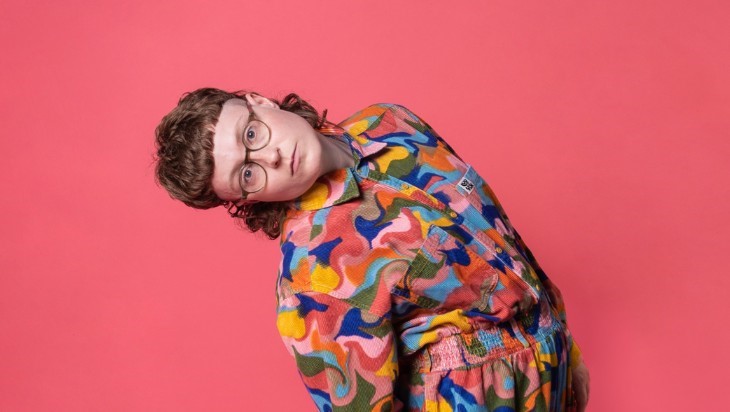New subject teaching students to hone comedy craft is no joke

By Sarah Hall
Recent headlines have reflected the role comedy plays in speaking truth to power. Chinese social media platforms recently suspended accounts belonging to comedian Nigel Ng, who performs as Uncle Roger, after he poked fun at China's authoritarian government in a stand-up show. In the same week, a joke imitating Chinese President Xi Jinping, made by comic Mr Li, led to his employer being fined three million dollars.
Here, we are fortunate not to be subjected to the same censorship laws, but comedy remains a vitally important political and social apparatus.
Stand Up and Be Funny, a breadth subject fostering a new generation of comedy talent, has just run its first semester at the University of Melbourne.
The subject was written by stand-up comedians Scout Boxall and Elyce Phillips, who have been on campus sharing their wit and craft with students from across the University while juggling busy touring schedules.
The subject teaches students how to turn their lived experiences into funny stories that connect with audiences and features guest appearances from a range of Melbourne's comedy greats, including Kirsty Webeck who does a class on stand-up, Frankie McNair with a class on alternative comedy, Millie Holten on satire, and Jeremiah Detto on clown.
"I was a little bit worried that we might have some people who are quite shy or we might have people who were sort of treating it as a light subject to complement a heavier workload," said Scout of anticipating the first semester of the subject.
"But I've been really blown away by how engaged, interested, and keen the students have been."
Stand-up comedy is a tough, nerve-wracking gig, and the skills it takes to get up and present original material in front of an audience takes guts. With this in mind, Stand Up and Be Funny helps students hone their critical thinking and analytical skills and provides an understanding of comedy in its context - respecting the historical, social, and ethical constraints that inform the artform.
"We're also teaching presentation skills and techniques of dealing with things like nerves and stage fright, which is really tough for a lot of people and can really affect a lot of people in whatever career they pursue, even if it's outside of performing," said Scout.
Beginning with raw material, such as a concept for a character or a situation, students are guided in how to observe everyday people and ordinary encounters. They then recreate them into funny stories in preparation for a stand-up show at the end of semester.
Scout reminds me that stand-up comedians often aren't who you might expect.
"Stand-up comedians aren't necessarily the class clowns."
"I would argue if you have something new and fresh to say, then you should consider taking the subject. You might have something to bring as a performer, writer, or even someone who can generate new ideas."
"I think a lot of people took [the subject] because they wanted to learn how to be a bit more confident in their own skin in a performance setting or a presentation setting, in a non-judgmental environment. I think that the subject has really done that."
In the lead up to the premiere of their show Turbo Lover at the 2023 Melbourne Comedy Festival, Scout was described in The Saturday Paper as a "thrilling talent developing at warp speed." Elyce's show, Elyce Phillips Pretends To Be On Tropical Holiday For 50 Minutes (Definitely Not A Scam) was written up in Weekend Notes as "Unpredictable, over the top, and thoroughly entertaining."
Scout says one of the biggest challenges of stand-up is working with audiences whose frame of reference or context is different from yours.
"I think it's very easy if you perform only in Melbourne to only Melbourne audiences that you can get used to performing in an echo chamber. Then when you perform outside of that, it can be very daunting."
"You know, it's the comics job to get the audience, not the audience's job to get the comic."
They explain that stand-up comedians often have a winding path to their careers, and formal training is rare. They are excited that through this subject students have the ability to pick the brains of successful working comedians, who offer valuable insights into their careers that could otherwise be hard to access.
"[I have witnessed students], even who might have been a little shy at the start, conquering nerves and dealing with memorising material and feeling confident," said Scout.
It might be daunting initially, but it's the students who have the last laugh.
This subject is generously supported by the Vizard Foundation.
Find out more about Stand Up and Be Funny in the Handbook